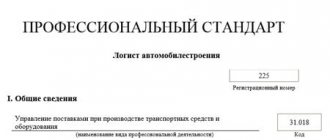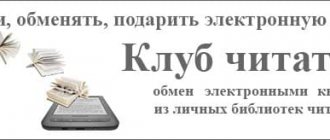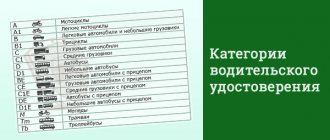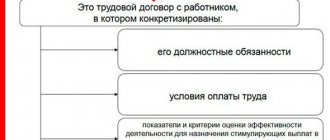Scope of the professional standard
The professional standard of a nurse is a document that sets out the requirements for this type of professional activity, such as requirements for education, skills, qualifications, conditions for admission to work.
Mandatory application of professional standards
The professional standard of a nurse is mandatory for use based on the following:
- According to Art. 195.3 of the Labor Code of the Russian Federation, if qualification requirements for a certain job are established by regulations, professional standards are mandatory for application in relation to such requirements. Qualification requirements for the position of a nurse are established by order of the Ministry of Health and Social Development of Russia “On approval...” dated July 23, 2010 No. 541n. That is, based on the existing qualification requirements, for example, a professional standard for a physical therapy nurse, a professional standard for a dietary nurse, etc. should be developed and approved.
- If the work is related to the provision of certain benefits, then the name of the position must be indicated in accordance with the professional standard (Article 57 of the Labor Code of the Russian Federation). Because benefits for medical workers are established by Art. 350 of the Labor Code of the Russian Federation, this basis also applies to nurses.
- If the employee’s remuneration is carried out according to the tariff system, then it should be established taking into account the professional standard (Article 143 of the Labor Code of the Russian Federation). This basis applies to public sector health workers, since their remuneration is regulated by the Decree of the Government of the Russian Federation “On the introduction of new remuneration systems...” dated 05.08.2008 No. 583.
Note! The mandatory application of professional standards does not depend on the form of ownership of the organization (clause 7 of the letter of the Ministry of Labor of Russia dated 04.04.2016 No. 14-0/10/B-2253). Details are in our article “Which organizations are required to apply professional standards?”
Areas of application of the professional standard
Let's consider some areas of application of the nurse's professional standard. Based on the professional standard, an employer can:
- determine personnel policy;
- conduct certification and professional development of employees;
- determine the labor responsibilities of employees, include them in job descriptions and employment contracts;
- establish a remuneration system, including determining incentive payments, etc.
Professional standards are useful for workers because they can be used to find out what requirements apply to certain positions.
What dictated the need to introduce a professional standard for a nurse?
First of all, it is an effective tool for personnel policy. Using the professional standard, the qualification level of personnel is objectively determined. Confirmation in a position is possible only if the applicant presents a certificate of accreditation of a specialist, which is one of the requirements of the professional standard.
In addition, a gradation of qualification requirements is presented to all healthcare employees, and it directly depends on the position held. The labor functions considered in the professional standard of a nurse are characteristic of categories of employees (according to the level of their professional suitability).
Schedules for the implementation of professional standards in institutions of the Ministry of Health are drawn up in view of the specifics of the industry. The health and well-being of patients depends on the clarity of the requirements and the strict implementation of them.
The professional standard is relevant for the head of a medical institution to streamline the staffing policy of internal corporate control over the performance of their duties by employees.
https://youtu.be/zCf_PAhrAE8
How to correctly use the professional standard for employers
The professional standard of a nurse, approved by Order of the Ministry of Labor of Russia dated January 12, 2016 No. 2n (hereinafter referred to as Order No. 2n) applies to junior medical staff. The professional standard for a senior nurse has not yet been approved.
The professional standard approved by the Government of the Russian Federation in 2020 does not apply to nurses, but applies to specialists supporting the activities of the organization and doctors (order of the Ministry of Labor of Russia “On approval of the professional standard “Specialist in the field of healthcare organization and public health”” dated November 7, 2017 No. 768n).
Note! All approved professional standards are available on the Ministry of Labor website.
When using the professional standard in practice, the following must be kept in mind:
- The use of the professional standard is advisory in nature, with the exception of cases of its mandatory use (Article 57, 195.3 of the Labor Code of the Russian Federation).
- The employer must change the names of positions in the organization's documents and, if necessary, in employment contracts in accordance with the professional standard.
- The mere introduction of professional standards in terms of length of service and education requirements cannot be grounds for dismissing an employee.
- If an employer does not apply the professional standard in cases of its mandatory use, he may be brought to administrative liability on the basis of Art. 5.27 Code of Administrative Offenses of the Russian Federation.
The corresponding clarifications are given in the letter of the Ministry of Labor of Russia dated April 4, 2016 No. 14-0/10/B-2253.
A set of activities that the nurse performs according to the schedule established by management
In addition to daily cleaning of work and technical premises, the nurse ventilates the medical staff’s offices and hallways. This requirement helps to destroy pathogenic bacteria.
The professional standard requires an employee in the position of a nurse to clean windows in wards, recreation areas and medical staff offices. Cleaning is carried out using sanitary products according to the established schedule.
In refrigerators that are installed in utility rooms, staff rooms or recreation rooms, order is also maintained by a nurse. In this case, it is necessary to use labeling of stored products indicating their expiration date.
In addition, the professional standard requires storing cleaning equipment in proper form. All tools intended for cleaning must also be clean and periodically disinfected.
At the same time, the orderly must ensure that all cleaning equipment is labeled. Each item from this series is on the balance sheet of the institution and is in the statement of material assets.
Contents of the professional standard
Let's consider the content of the professional standard of a ward nurse, approved by Order No. 2n. The professional standard consists of 4 sections. Section I includes general information such as the type and purpose of professional activity. Sections II and III reveal labor functions and their characteristics. Section IV contains information about the developers of the professional standard.
Requirements for a nurse
The professional standard imposes one of the following requirements for the education of workers holding the position of junior nurse in patient care:
- secondary general education and vocational training for the position of “junior nurse for patient care”;
- secondary vocational education in such specialties as “medicine”, “midwifery”, “nursing”, an educational training program for the position of “junior nurse for patient care”.
The specified professional standard also contains requirements for persons working as orderlies:
- secondary general education;
- vocational training for the position of "health attendant".
Note! The professional standard does not contain requirements for practical work experience in the positions of nurse and orderly.
It does not matter how the employee received secondary general education - in an educational organization or through family education or self-education (Article 17 of the Law “On Education in the Russian Federation” dated December 29, 2012 No. 273-FZ).
On November 21, 2018, the Ministry of Health of the Russian Federation issued a letter “On the issue of professional activities of persons...” No. 16-5/2125907, which contains clarifications on the requirements for junior medical staff, in particular for their professional training:
- persons have the right to work as a nurse or orderly after completing vocational training, although its duration is not established by the standard;
- the content of vocational training must be determined in a specific program approved by the educational organization.
Job responsibilities
The labor function of a nurse, according to the professional standard, is professional patient care. The duties of a nurse include:
- monitoring the patient's condition;
- providing first aid in case of a threat to the patient’s life;
- caring for patients in serious condition, which includes washing, feeding, etc.;
- receiving sets of clean linen, as well as changing them;
- informing medical staff about changes in the patient’s condition, etc.
The labor functions of a nurse include transporting medical waste and caring for the body of a deceased person. Some of the duties of a nurse include:
- daily cleaning of wards and other premises, including ventilation and air disinfection;
- disinfection of inventory and equipment;
- providing post-mortem care for the patient, transporting him to the morgue, etc.
Professional standard for a nurse on compliance with the anti-epidemic regime
The performance of these generalized functions requires a narrower list of labor skills. First of all, the nurse is obliged to coordinate all professional actions with the medical staff. She is also required to be able to provide first aid to patients and strictly comply with fire and epidemiological safety requirements.
If a nurse is charged with moving any material assets or waste, then the nurse is obliged to independently distribute them on a vehicle and deliver them to their destination.
The professional standard prescribes the timely removal of any waste generated as a result of the professional activities of a medical institution from the place of generation. Thus, sanitary and hygienic standards are maintained within the institution.
In order to perform these labor actions, the nurse must rationally use special transport equipment for moving waste, which is on the balance sheet of the medical institution.
In this case, it is necessary to take into account the norms of the anti-epidemic regime. That is, the transportation of waste from an institution is carried out in accordance with infection safety standards.
In this regard, the nurse is required to be able to seal packaging containing disposable waste. If waste characterized by a potential infectious hazard is transported using tanks or other containers, then the duty of the nurse is to thoroughly clean and completely disinfect the container.
In any case (when transporting in disposable bags or reusable containers), the nurse is obliged to use personal protective equipment and systematically perform hand hygiene.
Sometimes the waste inside an institution has a large mass. In this case, their movement is carried out in accordance with the rules for lifting weights. To do this, the management of the institution is obliged to provide the nurse with health-saving technologies and devices that optimize this work function.
A set of requirements for infectious safety is contained in the official Instructions for the collection and movement of waste generated during the daily functioning of the institution.
The nurse, therefore, is required to know the waste management scheme, which is located in any institution in the visual access zone.
Document structure
To determine the job parameters of a nurse, professional standard 02.003, approved by the Ministry of Labor on January 12, 2016, is used. It defines the qualification characteristics of junior medical personnel, including nurses. This document consists of four sections.
The first part lists the goals of activity, groups of occupations (according to OKZ - classifier of occupations) and types of economic activity according to OKVED.
The second part gives a general description of the core functions of a nurse: caring for patients and maintaining wards and other hospital premises in order. Levels and sublevels of qualifications are also given here.
The third section describes labor functions in detail. Its first part contains requirements for a generalized labor function that guarantee its high-quality implementation. These relate to experience, education and special clearance parameters. Thus, it is mandatory for a nurse to undergo a medical examination. Further, each generalized function is divided into specific labor actions and the knowledge and skills required for them.
The final part includes a list of specialized organizations that developed the document.
Attention! The professional standard does not include a number of the most important job parameters. It does not contain the employee’s powers, criteria for his responsibility for violations, job regulations and other aspects. To specify these provisions, you need to use job descriptions and other labor documents.












